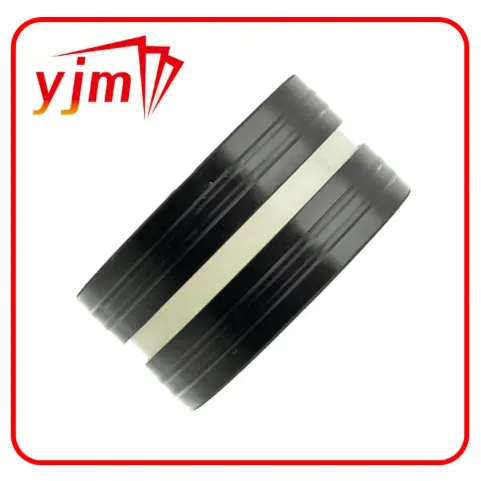Advanced Oil Seal Solutions: From KOK Seals to Magnetic and Mechanical Innovations
In the world of industrial and automotive engineering, oil seals play an essential role in preventing fluid leakage, maintaining lubrication, and protecting machinery from contaminants. From basic lip seals to advanced magnetic systems, each oil seal type is engineered for specific operating conditions. This article explores seven vital sealing components — KOK oil seal, KOK seal, lip seal ring, mag seal oil, magnet oil seal, Max Spare oil seal, and mechanical oil seal — and their applications across various industries.

Reliable Sealing with KOK and Lip Seal Technologies
High-quality oil seals are crucial in ensuring the longevity and performance of rotating and reciprocating systems. Among the most recognized in the industry are KOK oil seal products, known for their durability and precision engineering.
KOK Oil Seal and KOK Seal
KOK oil seal is a popular brand that has gained global recognition for producing high-performance oil seals used in automotive, agricultural, and industrial machinery. Made from materials like Nitrile rubber (NBR), Fluoroelastomer (FKM), and Silicone, KOK seals offer excellent resistance to oil, heat, and wear.
Advantages of KOK seal solutions:
High sealing reliability under dynamic conditions
Suitable for high-speed applications
Long service life with minimal maintenance
Applications include:
Automotive transmissions
Hydraulic pumps
Industrial gearboxes
By choosing a KOK seal, engineers can ensure consistent protection against oil leakage and contaminant intrusion.
Lip Seal Ring
The lip seal ring, also known as a radial shaft seal, features one or more flexible sealing lips that maintain contact with a rotating shaft to prevent oil leakage. This type of seal is commonly used in engines, pumps, and compressors.
Key features of the lip seal ring:
Sealing lips with spring-loaded design for tight fit
Low-friction operation
Wide compatibility with different shaft sizes and fluids
The lip seal ring plays a vital role in both retaining lubricant and keeping out dust, water, and other environmental contaminants.
Innovative Sealing: Magnetic and Magnet-Assisted Oil Seals
As industries demand more advanced solutions, magnetic oil sealing technologies are becoming increasingly important. These seals offer enhanced performance in high-speed, high-temperature, or ultra-clean environments.
Mag Seal Oil
The mag seal oil is a cutting-edge sealing technology that uses magnetic force to create a contactless or near-contact seal around a rotating shaft. This innovative approach eliminates friction and reduces wear, making it ideal for cleanroom and high-speed applications.
Benefits of mag seal oil:
Non-contact sealing extends component lifespan
Suitable for vacuum or sterile environments
Reduced heat generation and energy consumption
Used in semiconductor equipment, medical devices, and food processing machinery, mag seal oil provides unparalleled sealing performance where traditional rubber seals may fall short.
Magnet Oil Seal
Similar in concept to the magnetic seal, the magnet oil seal incorporates magnets into the sealing lip or housing to enhance the contact force and ensure consistent sealing pressure.
Applications of magnet oil seal:
Automotive alternators and motors
Aerospace actuators
Robotics and precision systems
By maintaining optimal sealing pressure, magnet oil seals reduce the risk of leakage in high-vibration or fluctuating temperature environments. Their enhanced durability also reduces downtime and replacement frequency.
Durability and Customization in Mechanical and Aftermarket Seals
While advanced sealing methods are gaining popularity, traditional designs like mechanical seals and trusted aftermarket options such as Max Spare oil seal remain essential for heavy-duty and cost-effective solutions.
Max Spare Oil Seal
Max Spare oil seal is a brand widely known for supplying high-quality aftermarket seals compatible with a broad range of machinery. Manufactured in compliance with global standards, these seals are often used for replacement in industrial and mobile equipment.
Advantages of Max Spare oil seal:
Wide availability of standard and custom sizes
Compatible with aggressive fluids and extreme temperatures
Affordable and reliable for maintenance needs
Industries using Max Spare oil seals include:
Construction
Marine
Manufacturing
These seals provide a balance of performance and value, especially in systems requiring regular maintenance or retrofitting.
Mechanical Oil Seal
The mechanical oil seal, or mechanical face seal, is a robust sealing solution used in applications where traditional lip seals may fail due to pressure, temperature, or chemical exposure. These seals use a rotating and stationary face (often ceramic or carbon) pressed together by springs to prevent leakage.
Characteristics of mechanical oil seal:
Suitable for high-pressure and corrosive environments
Excellent thermal and chemical resistance
Long service intervals
Commonly found in:
Pumps and mixers
Compressors
Industrial turbines
By choosing a mechanical oil seal, engineers can achieve higher reliability in critical systems with challenging operating conditions.
Choosing the Right Seal for Maximum Protection
Sealing technology has evolved significantly, offering a range of solutions from standard lip seals to advanced magnetic and mechanical seals. Whether you're selecting a KOK oil seal for an automotive gearbox, a magnet oil seal for a high-speed spindle, or a mechanical oil seal for an industrial pump, the key to performance lies in matching the right seal to the specific application.
Key Takeaways:
KOK seals and lip seal rings offer dependable sealing for rotating equipment.
Mag seal oil and magnet oil seals represent the future of non-contact, high-precision sealing.
Max Spare oil seals provide cost-effective aftermarket options.
The mechanical oil seal delivers durability in high-load and high-pressure systems.
As systems become more complex and demanding, understanding the function and capabilities of each sealing type will help engineers make informed decisions and maintain operational efficiency for years to come.
-
The Essential Guide to Oil Seals in Automotive and Industrial Applications
ዜና Jul.16,2025
-
Exploring Specialized Oil Seals: Key to Sealing Performance and Machinery Longevity
ዜና Jul.16,2025
-
Essential Oil Sealing Components: Enhancing Efficiency and Durability in Machinery
ዜና Jul.16,2025
-
Comprehensive Guide to Oil Sealing Components: From Manufacturing to High-Pressure Applications
ዜና Jul.16,2025
-
Advanced Oil Sealing Solutions: Exploring Modern Seal Types and Applications
ዜና Jul.16,2025
-
Understanding Flat Gasket Types: A Guide to Flange, Fiberglass, and Metal Gaskets
ዜና Jul.15,2025
-
Mastering Oil Drain Maintenance: Solutions for Stripped Plugs, Quick Drains, and More
ዜና Jul.15,2025
የምርት ምድቦች















